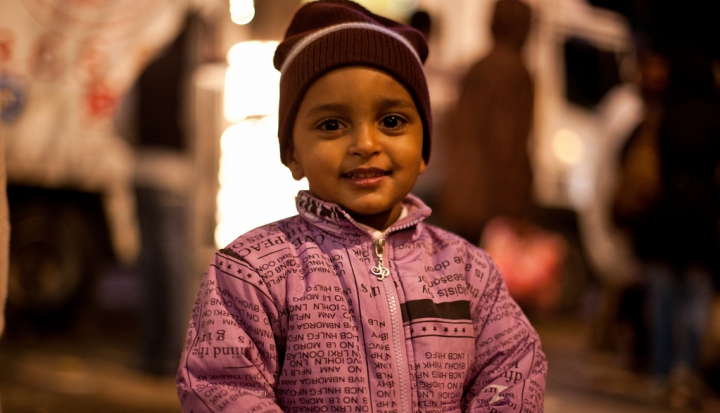An old Irish custom—at least my mother told me it was Irish and old—was to put an extra potato in the pot for supper for “the people on the road.” In the 19th century as landlords put tenants off their plots, families were forced to be migrants—internally or overseas. Remembering Matthew 25, the poor Irish would be prepared to welcome the stranger and fed the hungry—if only with a potato. I once mentioned this in a sermon and, as I greeted people after Mass, a Canadian told of a similar practice in Quebec.
During Advent and the Christmas season, we celebrate the coming of the Son of God: “Behold, the virgin shall conceive and bear a son, and they shall name him Emmanuel, which means ‘God is with us’” (Matt. 1:23). And this was confirmed by the heavens: “And suddenly there was a multitude of the heavenly host with the angel, praising God and saying: ‘Glory to God in the highest and on earth peace to those on whom his favor rests.’” (Luke 2:13–14)
Did you ever notice that the principals of the infancy narratives—save perhaps for the shepherds—were migrant, “people on the road”? Mary and Joseph, and Jesus in Mary’s womb, had to travel in midwinter from Nazareth to Bethlehem to be counted, and on arrival were homeless (Luke 2:1–7). The Magi came from the east following a strange light (Matt. 2:1–12). Then, to avoid the murderous wrath of Herod, Joseph took the child and mother and fled into Egypt (Matt 2:14).
It’s not strange that the Christian memory of the incarnation should at its beginnings have so many illusions to migration, the crossing of boundaries. Early Christians were mostly Jewish, and they shared the rich traditions of their people with the gentiles.
They taught us how God called Abram from Ur to a land where he will be made a great nation (Genesis 12:1–2). The great feasts of the Israelites recall how God led them out of Egypt (Passover) and through the desert (Tabernacles) to the land promised to Abraham. The one command of the Torah (law) most repeated is to welcome the stranger: “You shall not oppress an alien; you well know how it feels to be an alien, since you were once aliens yourselves in the land of Egypt” (Ex. 23:9).
Early disciples of Christ spoke mostly of “the following” or “the way,” reminiscent of journeys of the Israelites in the desert or of Jesus’ journey to Jerusalem. It is no wonder that a concrete sign of Christ among us is the stranger (Matt. 25:35–40).
During this season we also have the International Day of Migrants on Saturday, December 18. This year Pope Benedict wrote a message calling us to welcome the stranger as part of the “one human family.” This is the 97th time that a pope addressed the world on the migrant and refugee.
Benedict repeats much of what his predecessors, especially the Paul VI and John Paul II, have had to say, but stressed that “. . . the phenomenon of globalization itself, characteristic of our epoch, is not only a cultural and economic process, but also entails ‘humanity itself [that] is becoming increasingly interconnected,’ crossing geographical and cultural boundaries.” (Message for the World Day Of Migrants and Refugees) Globalization, in a sense, is driving to a great awareness that all peoples are of one human family: “…migrants and the local populations that welcome them, and all have the same right to enjoy the goods of the earth whose destination is universal, as the social doctrine of the church teaches. It is here that solidarity and sharing are found.”
The Holy Father does note that there are limitations to migration, and nations have the right to expect “an orderly flow” of migrants into their country. This aspect was highlighted in the secular press in the context of the debates in the U.S. and Europe over migration and the issue of assimilating migrants into the host society. Still, the message focused on a compassionate and effective welcome of the stranger.
As we celebrate the birth of Jesus, we should remember the mean circumstances in which he was born—homeless and “on the road.” He was born Jesus the migrant, Jesus the refugee. Remember also “you were once strangers in the land” (Lev. 19:34).
Flickr cc via Beautiful Faces of Berlin













